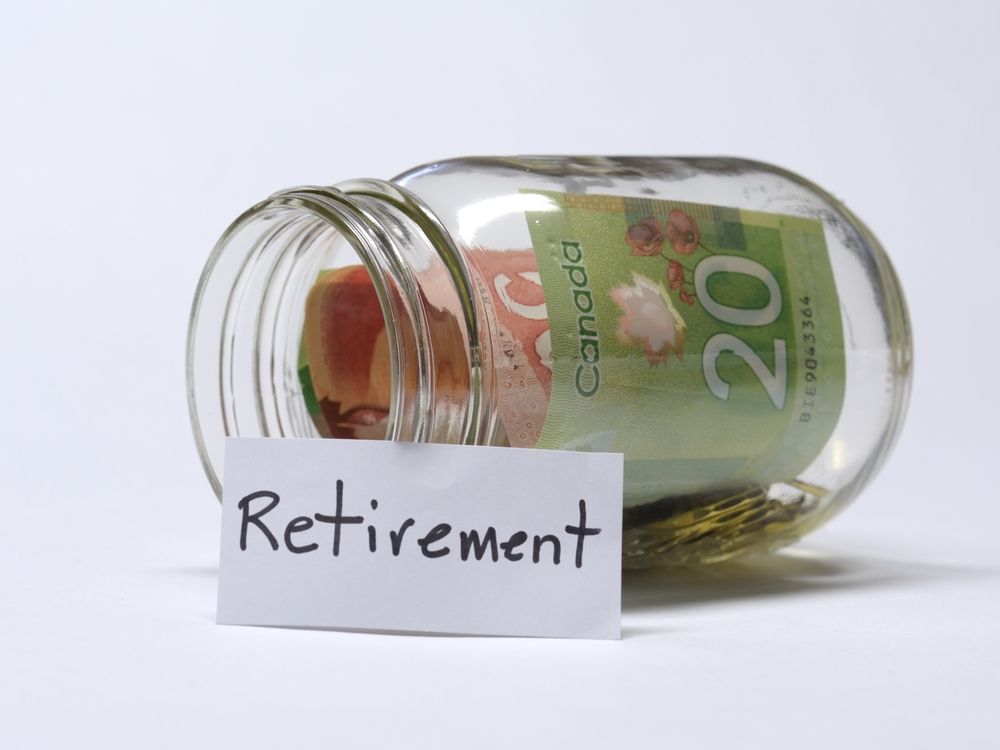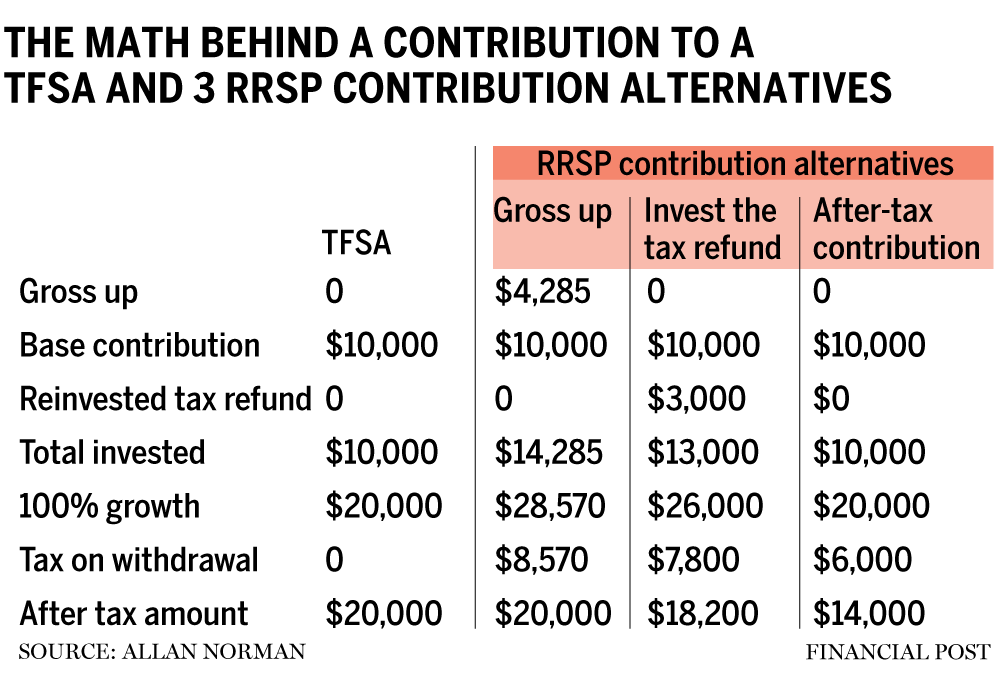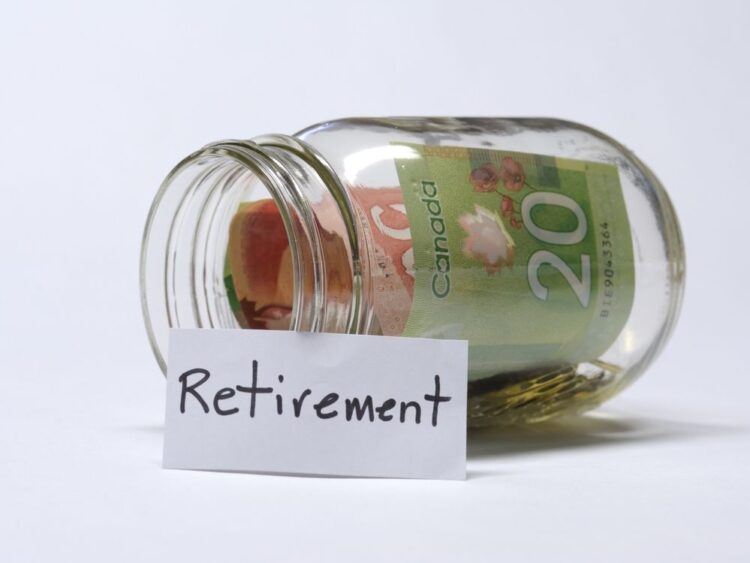
Q.
I’m a 58-year-old surgical nurse retiring in July. My
will probably be roughly $55,000 yearly and it’ll begin paying out in September. I’ve $48,000 in unused
registered retirement financial savings plan
(RRSP) contribution room. Ought to I
on my 2025 taxes? I’ve sufficient saved to take action. Or, ought to I persist with topping up my
tax-free financial savings account
(TFSA)?
—Thanks, Richard in Ontario
FP Solutions:
Richard, there are some things to think about when deciding on an RRSP or TFSA contribution. The most effective place to start out is with a superb understanding of the mathematics behind RRSPs and TFSAs.
It’s usually stated that RRSP contributions are made with pre-tax cash and TFSA contributions with after-tax cash. Though true by design, it’s not true primarily based on the way in which most individuals make RRSP contributions.
Most individuals suppose, “I’ve $10,000, ought to I add it to my RRSP or TFSA?” In case you are including to your RRSP you’ll possible do it in certainly one of 3 ways: you’ll gross up the quantity (which I’ll clarify later), you’ll reinvest the tax refund, or you’ll make investments solely the $10,000.
The accompanying desk illustrates the mathematics behind a $10,000 contribution to a TFSA, and three RRSP contribution options. I’m assuming the total contribution and withdrawal is taxed at 30 per cent and the preliminary funding grows by 100 per cent over time.

The ends in the chart are exhibiting no distinction between TFSAs and RRSPs if you’re grossing up (pre-tax) your RRSP contribution. You may also infer that if on the time of withdrawal you might be in a decrease tax bracket, the RRSP beats the TFSA and if in a better tax bracket, the TFSA beats the grossed-up RRSP.
Additionally obvious from the desk is that if you’re not grossing up your RRSP contribution the mathematics favours a TFSA contribution.
Grossing up your RRSP contribution means contributing an quantity equal to what you needed to earn earlier than tax, to have $10,000 in your checking account. Right here is the gross up formulation: $10,000/(1-30 per cent (your marginal tax fee)). To get the additional $4,285 you possibly can both borrow the cash from a lender or from your self after which pay it again while you get your tax refund.
Richard, you could be questioning, if you happen to maximize your $48,000 RRSP contribution how are you going to gross up your contribution? You may’t, however it’s nonetheless essential to know the mathematics behind contributions. You could even be trying on the different advantages of creating RRSP contributions.
RRSPs and TFSAs are each tax shelters. Nonetheless, you’ll possible cease incomes RRSP contribution room when you cease working, whereas every year you’ll earn further TFSA contribution room. Plus, this can be your highest revenue incomes 12 months. Primarily based on that it might be greatest to maximise your RRSP after which use the tax refund to high up your TFSA.
Understand that you don’t have to assert all or any of your RRSP tax deduction within the 12 months you make an RRSP contribution. Your revenue in 2025 will probably be made up of wage and pension and could also be your highest incomes 12 months till you begin your
(CPP) and
(OAS). You could need to declare an RRSP deduction to convey your revenue all the way down to the highest of the primary tax bracket and save your remaining RRSP deduction for a future 12 months or years. Should you resolve to do some part-time work the saved RRSP deductions could also be helpful.
One other consideration is that cash inside an RRSP compounds tax-free. The cash you’ve got saved to make the $48,000 contribution could also be incomes taxable curiosity, dividends, or capital features. The longer you’ve got the cash in your RRSP the larger this benefit turns into. Now, if you’re planning to spend the $48,000 within the subsequent 12 months or two you could solely need to add sufficient to your RRSP to convey you all the way down to the highest of the decrease tax bracket — about your pension revenue — after which high up your TFSA with the remainder, presumably leaving some non-registered cash.
Richard, as I discussed earlier, RRSPs and TFSAs are each tax shelters and RRSPs have a restricted shelf life in contrast with TFSAs. If that is long-term cash you’ve got saved so as to add to your RRSP it might be greatest to make use of it whilst you have the upper revenue and save your TFSA room.
Allan Norman, M.Sc., CFP, CIM, offers fee-only licensed monetary planning providers and insurance coverage merchandise by way of Atlantis Monetary Inc. and offers funding advisory providers by way of Aligned Capital Companions Inc., which is regulated by the Canadian Funding Regulatory Group. He might be reached at alnorman@atlantisfinancial.ca.
Bookmark our web site and help our journalism: Don’t miss the enterprise information you might want to know — add financialpost.com to your bookmarks and join our newsletters right here.



